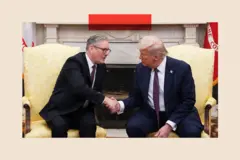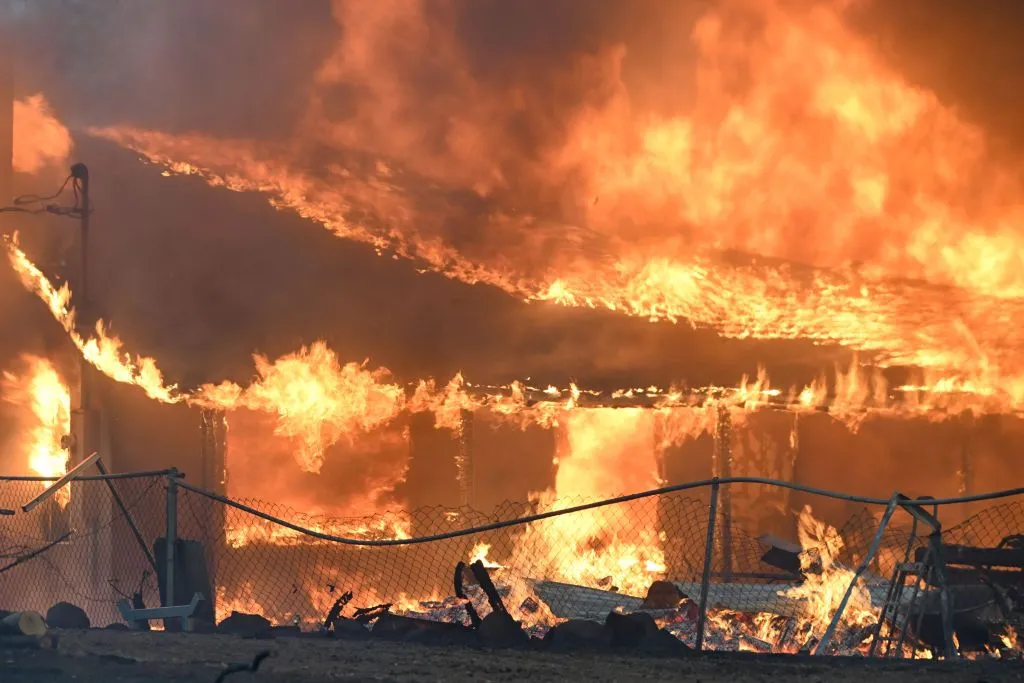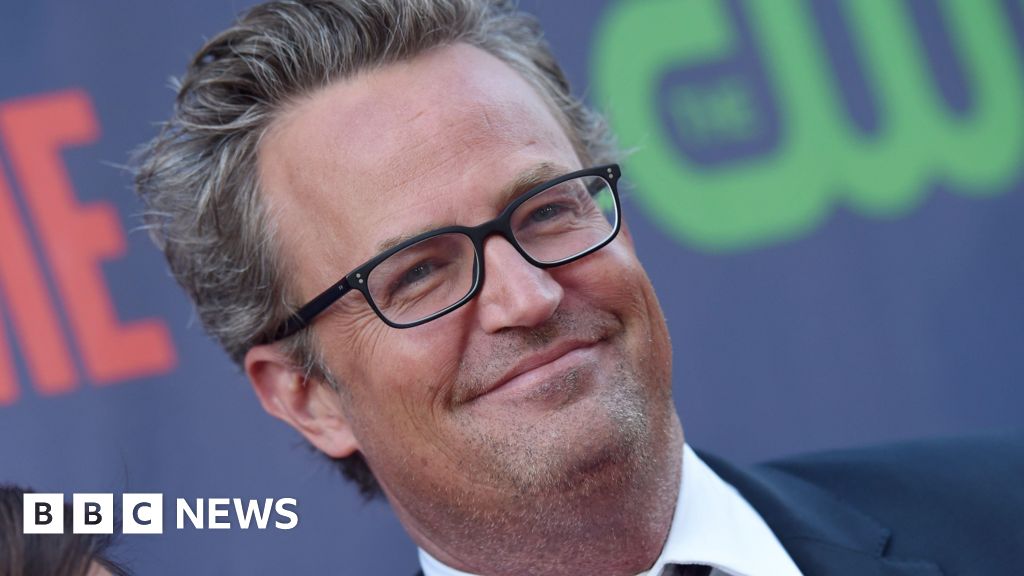
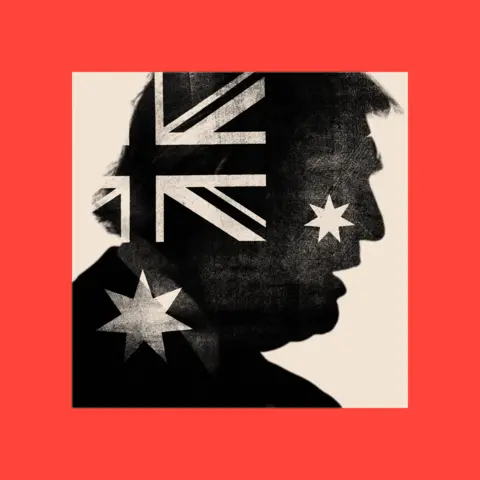 Getty Images
Getty ImagesListen to Katy read this article
In Western Sydney, an audience of Stetson-wearing Australians are sitting in their fold-up camping chairs, swigging beers and eating a spiralled fried potato on a skewer known as a ‘chip on a stick’.
People here are enjoying bull rides, barrel racing and bucking broncos. It feels like a slice of Americana in New South Wales perhaps – but that would miss the point that here, rodeo has become very much an outback Australian tradition in its own right.
In recent months, politics here in Australia could be compared to watching a rodeo. Between conflict in Europe, the Middle East and more recently US President Donald Trump and his threat of global trade wars, every day has brought with it a sharp jolt that changes the dynamics of the campaign trail. Politicians, like these cowboys, have been thrown off course despite their best efforts.
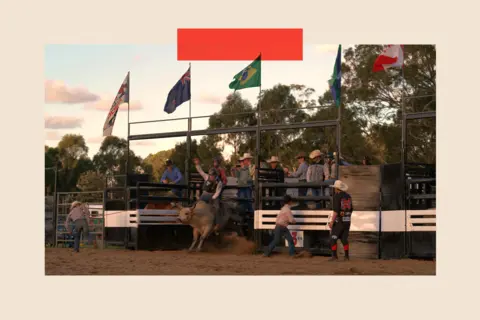
“Tariffs are great,” exclaims rodeo fan Guy Algozzino, who’s dressed in a cowboy hat, a waistcoat and a Western-style bolo tie with an engraved image of a cowboy riding a bull. “We should have had tariff protection many years ago – it looks bad now [but] America’s fantastic … Trump’s the best thing America ever had.”
Other spectators are more nuanced.
“It’s going nuts,” admits Jared Harris, when asked about world politics. “I’m just sitting back and watching. It’s a bit like a show. It’s quite interesting to watch, it’s entertaining. It probably affects me more than I realise, but I just choose to ignore it.”

Australia didn’t worry too much about President Trump’s second coming when he won power back in November. The country had already witnessed a Trump presidency – and weathered it. Australia felt far removed from the shores of America.
But Trump’s second term is panning out very differently. Tariffs – imposed on ally and adversary alike – have travelled the whole world.
Trump doesn’t care about making enemies. But Australia does. People here pride themselves on ‘mateship’ – a value that embodies friendship and loyalty – and that extends to politics too.
Australian Prime Minister Anthony Albanese said as much when Trump initially announced tariffs without exemptions. This was not “the act of a friend,” said Albanese, while he also committed to not responding in kind.
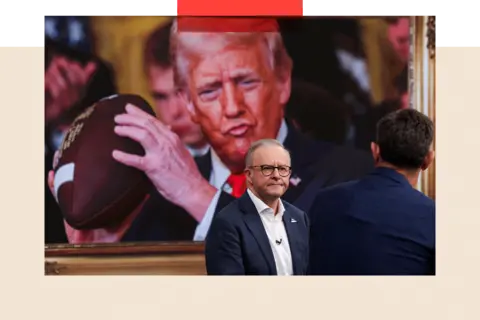 Reuters
ReutersAll of this comes as the country heads to a federal election on 3 May. Candidates would rather focus on domestic issues they can control: cost-of-living, housing and healthcare. Instead, they are forced to grapple with a question that goes right to the heart of Australia’s role in the world: how to deal with a US president as unpredictable as Trump?
‘Nowhere else to turn’
In the final few days of campaigning before up to 18 million Australians go to the polls, the Labor Party’s Albanese, who entered power three years ago after promising to invest in social services and tackle climate change, went on a speedy tour of six states. That effort appears to be paying off, with the latest YouGov poll putting Labor on 54 per cent of the two-party vote, versus 47 per cent for the opposition Coalition (an alliance of the Liberals and Nationals). This is a modest turnaround from the beginning of the year, when Labor was consistently lagging the Coalition in polls.
“It’s not the campaign either party thought they would be having,” says Amy Remeikis, chief political analyst at the Australia Institute think tank. “The looming figure of Trump is overshadowing the domestic campaign but also forcing Australia’s leaders to do something they haven’t had to do in a long time – examine Australia’s links to the US.”
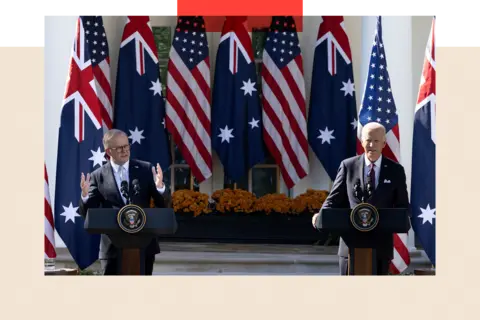 EPA-EFE/REX/Shutterstock
EPA-EFE/REX/ShutterstockThe US-Australia relationship has perhaps been taken for granted in these parts. Australia likes the fact the US has long been a dominant military force in the Pacific. Australia relies on its funding and benefits from being part of alliances like Aukus – the far-reaching defence pact between Australia, the UK and the US, designed to counter China – and the Anglo-intelligence alliance Five Eyes.
The rise of China has made Australia even more conscious about having the US on its side. Beijing has expanded its military presence in the Pacific, launching various military exercises in recent years – including one live-fire drill in February that saw Chinese naval vessels just 340 nautical miles from the New South Wales coast. Australia recently announced efforts to expand its navy and now hosts four US military bases – decisions fuelled in part by the rise of China.
It’s all placed extra value on Canberra’s alliance with Washington DC – one that Trump may be throwing into doubt.
Back in February, Trump held a meeting with the UK Prime Minister Sir Keir Starmer. He was asked whether they would be discussing Aukus.
“What does that mean?” Trump asked the reporter. After being given an explanation of Aukus, he continued. “We’ll be discussing that … we’ve had a very good relationship with Australia.”
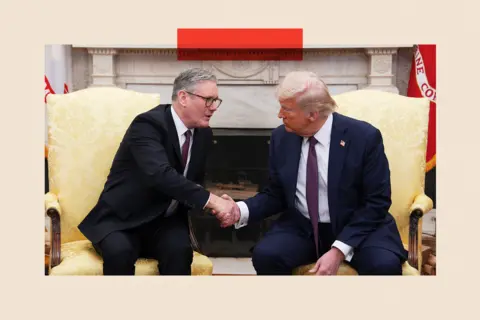 Getty Images
Getty ImagesAustralia collectively held its breath, then let it out in a big sigh of relief.
A blip maybe – but an indication perhaps of how little Trump thinks about Australia right now. However, Australia, like much of the world, is thinking about the US.
“We don’t have anywhere else to turn,” says David Andrews, senior policy advisor at the National Security College, which is part of the Australian National University in Canberra. “We are physically isolated from everyone. As long as we’ve had European settlement here, we’ve always been concerned about the distance [and] isolation, which is why we’ve always maintained such a strong relationship with first Britain and then the US as the dominant maritime power.”
While only 5% of Australia’s exports go to the US (China is by far Australia’s biggest trading partner), the US still dominates the conversation here.
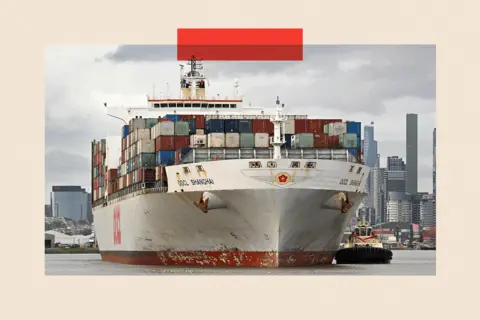 Getty Images
Getty Images“This isn’t a time to end alliances,” says Justin Bassi, director of the Australian Strategic Policy Institute, a think tank. “That would be cutting off our nose to spite our face.”
And, perhaps counter to the majority view here, Bassi thinks that Australia should support Trump’s moves.
“We should continue to make it clear that any measures the US takes against Australia are unjustified but we should welcome and support American measures to counter Beijing’s malign actions – or for that matter Russia,” he says. “Not to keep Trump happy but because it is in Australia’s interests to constrain the adversary that is undermining our strategic interests.”
A poll published by the Sydney Morning Herald newspaper last month found that 60% of Australians felt Trump’s victory was bad for Australia. That was up from last November when it was just 40%.
And a Lowy Institute poll published two weeks later showed almost two in three Australians held ‘not very much’ or no trust ‘at all’ in the US to act responsibly.
An election upended
Big questions on transnational alliances are not part of normal campaigning. But when Albanese and opposition leader Peter Dutton faced each other in their first televised debate, the first question asked by the audience was one on Trump.
Dutton has long stressed that he would be the politician best suited to dealing with the US President. He often cites his experience as a cabinet minister during tariff negotiations in Trump’s first term. But that strategy doesn’t always serve him well.
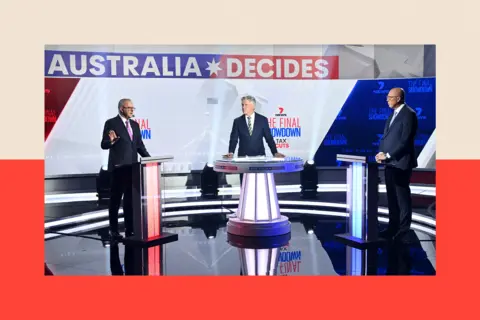 Reuters
Reuters“He went into the election telling people he and Trump were similar enough that they would get on better, that he was the sort of personality Trump liked,” says Remeikis. “He’s not repeating that now because people don’t want someone to get on with Trump – they want someone who will stand up to him.”
Dutton has had to do some back-pedalling on comments he made earlier in the year. Back in February, after Trump said he had plans to eject Palestinians from Gaza, Dutton called the US president “a deal-maker … a big thinker.”
And he has come in for some criticism amid accusations of copying the US president. He’s talked about cutting public sector jobs, for example. And his Liberal party appointed Jacinta Nampijinpa Price as shadow minister for government efficiency, not too dissimilar to the Doge. But when Senator Price recently started talking about wanting to ‘Make Australia Great Again’ on the campaign trail, Dutton avoided questions over the comments.
Albanese of course has to tread a careful line too. In a world that’s being turned upside down, he’s trying to reassure people he’s a safe pair of hands; that those alliances remain.
That may turn out to be in his favour.
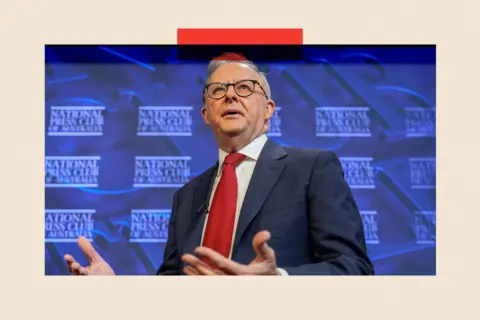 Getty Images
Getty ImagesIndeed, some analysts say that Trump’s conduct may be helping Albanese, with voters rushing to support the incumbent during a time of perceived crisis. Just a few months ago, Labor’s re-election was thought unlikely as it consistently polled behind the Coalition. But the final YouGov polling model of the election, published a few days ago, predicted that Labor will win 84 of the 150 seats in the House of Representatives – an increased majority.
For Professor Gordon Flake, CEO at Perth USAsia Centre, a think tank, it paints a stark parallel with this week’s election result in Canada – in which the Liberal Party won re-election by riding a backlash of anti-Trump sentiment.
“What we have seen in Canada has been a dramatic shift back towards the incumbent government and that is a rallying around the flag based on attacks on that country,” he says.
“The attacks on Australia haven’t been as severe so it’s not the same degree, but at the same time you’re also seeing a rallying around the current Labor government. Six months ago you thought their re-election would be unlikely; today on the cusp of the election here in Australia, it seems more likely than not – and one of the important factors in that has been developments in Washington DC. “
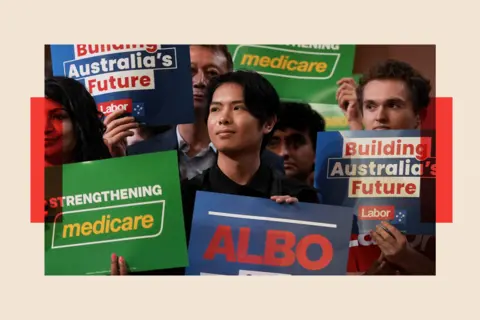 Getty Images
Getty ImagesBut whoever wins, they will have a big job on their hands to navigate Australia’s future with its allies.
“We have to make do with the hand we’ve been dealt,” says Andrews. “I expect that we are going to have to be much more ruthlessly self-interested and that’s not comfortable because our foreign policy has generally been based around cooperation, collaboration and multilateralism – so that shared sense of threat that middle powers have of working together to maximise their output.”
Back at the rodeo, the sun’s gone down, the cheerleaders are out and the audience gets ready to watch bucking broncos – the riders shortly afterwards holding on to their steer for as long as possible before being violently thrown to the ground.
Flying above the arena are the flags of Canada and the US, alongside Australia, New Zealand and Brazil. There may not be much of a team spirit among allies right now – but voters here will be keen to see how their next leader rides out the storm.
BBC InDepth is the home on the website and app for the best analysis, with fresh perspectives that challenge assumptions and deep reporting on the biggest issues of the day. And we showcase thought-provoking content from across BBC Sounds and iPlayer too. You can send us your feedback on the InDepth section by clicking on the button below.

Follow the twists and turns of Trump’s second term with North America correspondent Anthony Zurcher’s weekly US Politics Unspun newsletter. Readers in the UK can sign up here. Those outside the UK can sign up here.
